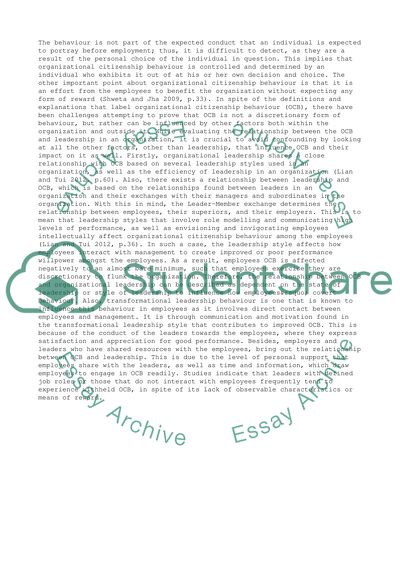Cite this document
(Leadership and Organizational Citizenship Behavior Essay, n.d.)
Leadership and Organizational Citizenship Behavior Essay. Retrieved from https://studentshare.org/management/1462728--drawing-on-a-range-of-scholarly-articles
Leadership and Organizational Citizenship Behavior Essay. Retrieved from https://studentshare.org/management/1462728--drawing-on-a-range-of-scholarly-articles
(Leadership and Organizational Citizenship Behavior Essay)
Leadership and Organizational Citizenship Behavior Essay. https://studentshare.org/management/1462728--drawing-on-a-range-of-scholarly-articles.
Leadership and Organizational Citizenship Behavior Essay. https://studentshare.org/management/1462728--drawing-on-a-range-of-scholarly-articles.
“Leadership and Organizational Citizenship Behavior Essay”, n.d. https://studentshare.org/management/1462728--drawing-on-a-range-of-scholarly-articles.


